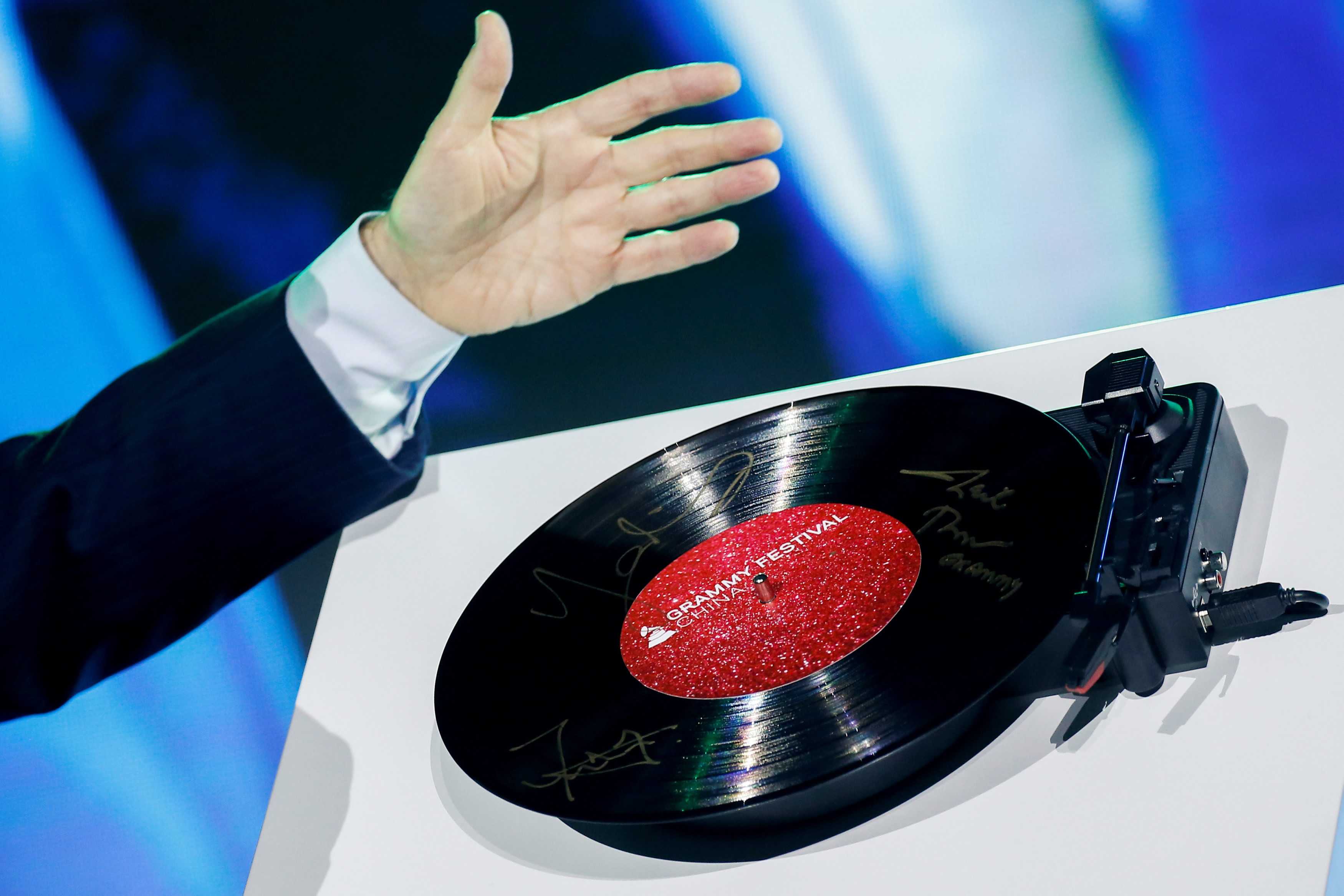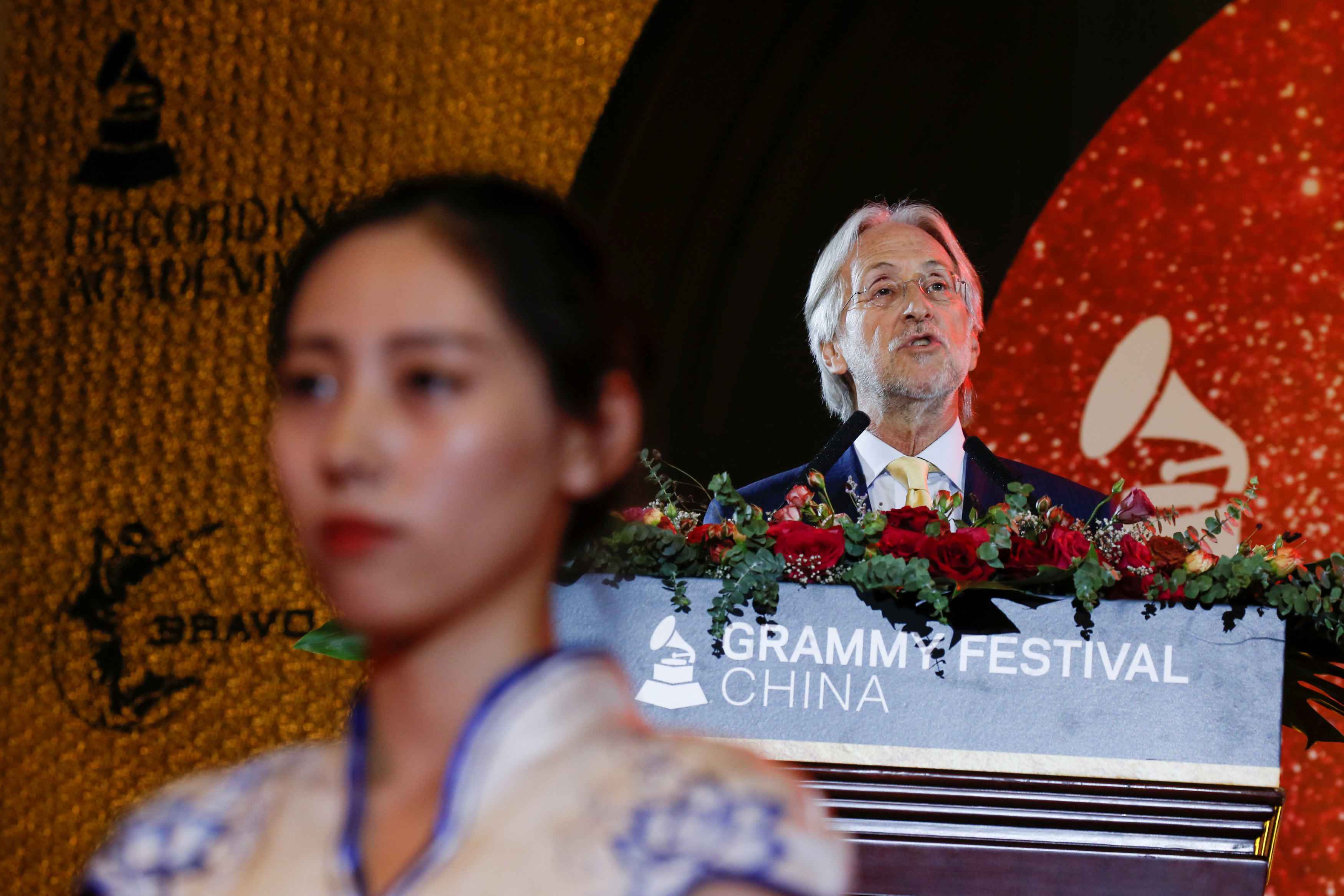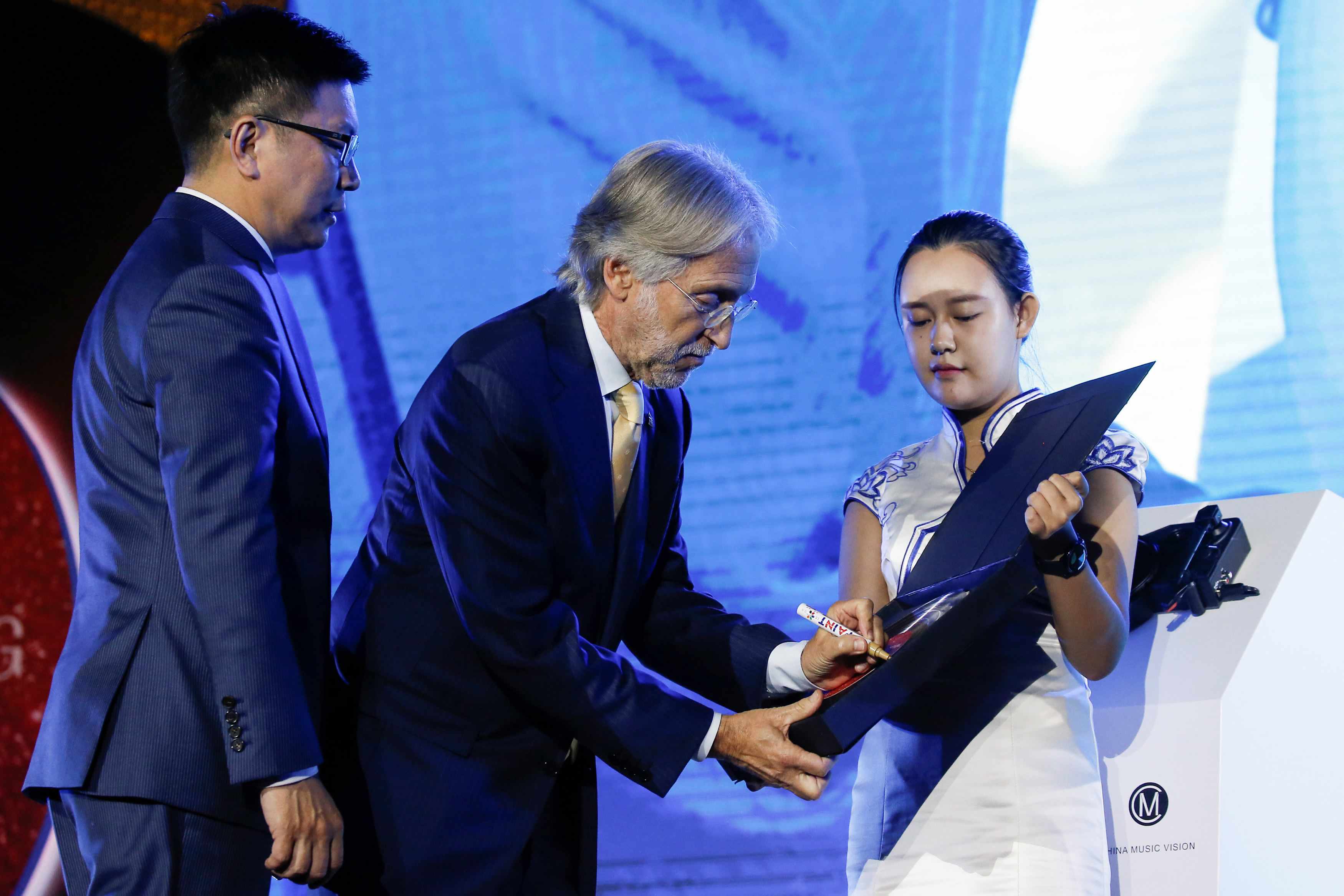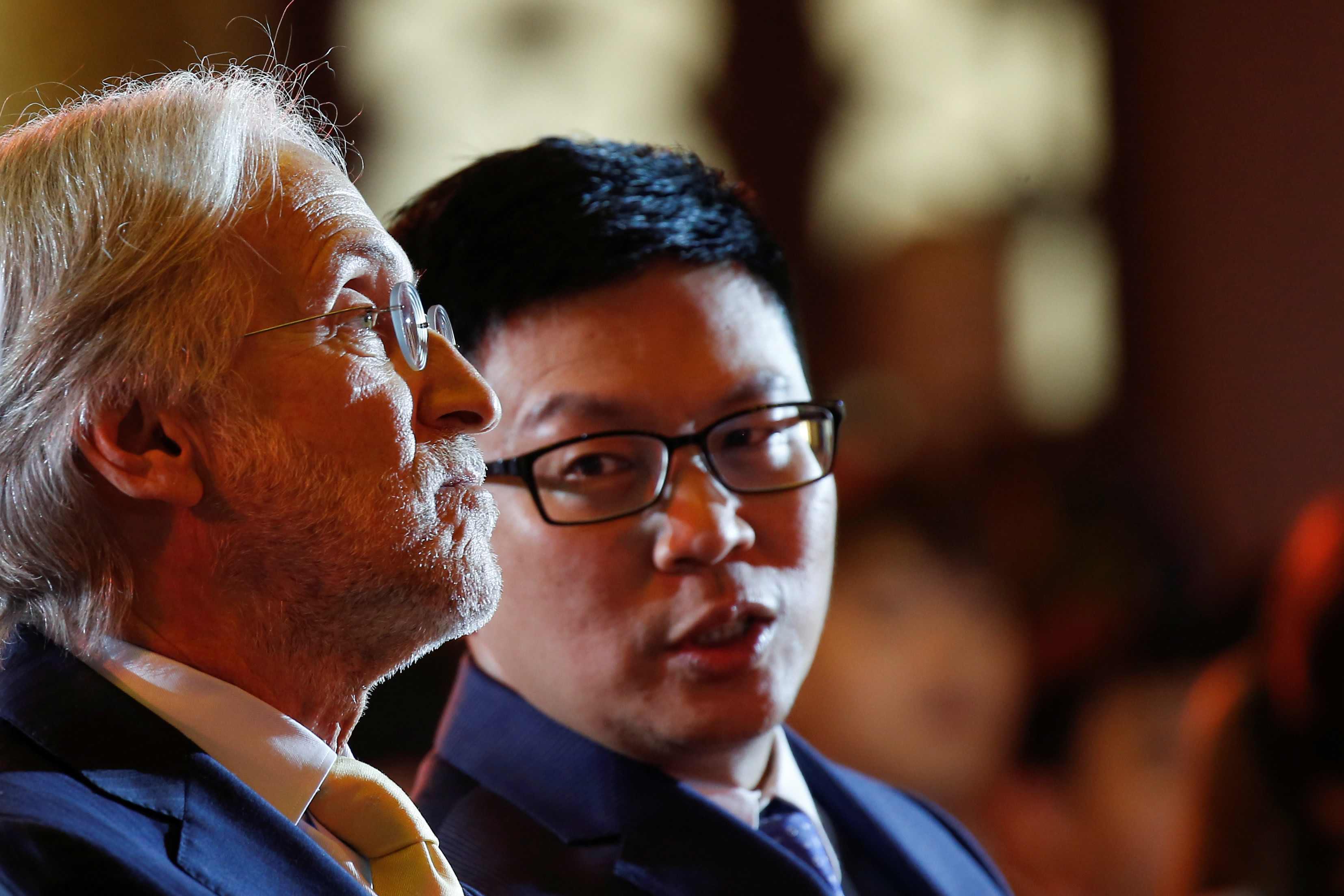The Grammys is looking to break into China but it will have to do so without help from top stars like Justin Bieber and Lady Gaga, after it pledged to feature only well-behaved artists to meet the demands of the Chinese censors.
Lady Gaga, Bjork and Bon Jovi are all prohibited from performing in China after they met or expressed support for exiled Tibetan spiritual leader, the Dalai Lama.
China also recently blacklisted Canadian popstar Justin Bieber, citing bad behavior.

A record signed by representatives of the Recording Academy, Bravo
Entertainment and China Music Vision spins on a player during a ceremony in
Beijing marking a Chinese partnership to create the Grammy Festival China,
August 3, 2017. /Reuters Photo
A record signed by representatives of the Recording Academy, Bravo
Entertainment and China Music Vision spins on a player during a ceremony in
Beijing marking a Chinese partnership to create the Grammy Festival China,
August 3, 2017. /Reuters Photo
China's huge consumer base is a magnet for Hollywood studios to theme park operators, but entry in the market comes with strings attached.
The country has long censored imported film and music and is now clamping down hard on audiovisual content online.
The Recording Academy, which runs The Grammys, pledged on Thursday in Beijing to respect China's media curbs as it plans to launch a tour in China in 2018 featuring its award-winning artists, or nominees, performing live shows.

President of the National Academy of Recording Arts and Sciences Neil Portnow
speaks during a ceremony in Beijing marking the start of a partnership to create
the Grammy Festival China, August 3, 2017. Reuters Photo
President of the National Academy of Recording Arts and Sciences Neil Portnow
speaks during a ceremony in Beijing marking the start of a partnership to create
the Grammy Festival China, August 3, 2017. Reuters Photo
"If there are restrictions and things of that nature, we have to be respectful," Neil Portnow, president and chief executive of The Recording Academy, told Reuters in Beijing.

President of the National Academy of Recording Arts and Sciences Neil Portnow
(C) and CEO of Bravo Entertainment Seven Fock sign a record during a ceremony in
Beijing marking the start of a partnership to create the Grammy Festival China,
August 3, 2017. /Reuters Photo
President of the National Academy of Recording Arts and Sciences Neil Portnow
(C) and CEO of Bravo Entertainment Seven Fock sign a record during a ceremony in
Beijing marking the start of a partnership to create the Grammy Festival China,
August 3, 2017. /Reuters Photo
China has launched a campaign to cleanse the entertainment sector of content it deems inappropriate and unhealthy, a vague term the authorities frequently use to justify censorship of politically sensitive topics.
"We will promote artists with a positive and healthy image," said Steven Fock, chief executive of music events organizer Bravo Entertainment, one of The Recording Academy's partners for the live show tour along with China Music Vision.

President of the National Academy of Recording Arts and Sciences Neil Portnow
(C) and CEO of Bravo Entertainment Seven Fock sign a record during a ceremony in
Beijing marking the start of a partnership to create the Grammy Festival China,
August 3, 2017. /Reuters Photo
President of the National Academy of Recording Arts and Sciences Neil Portnow
(C) and CEO of Bravo Entertainment Seven Fock sign a record during a ceremony in
Beijing marking the start of a partnership to create the Grammy Festival China,
August 3, 2017. /Reuters Photo
At a time of slowing domestic growth, Chinese audiences have become increasingly important to the US entertainment industry.
A livestream in China last year of the Grammy Awards drew nearly 11 million viewers.
In contrast, Grammy viewership dipped slightly for the latest show in February, from nearly 25 million last year in the United States.
In January, The Recording Academy said it would build its first overseas Grammy Museum in China.
Portnow added he hoped curbs on some artists would be lifted eventually, and vowed to push China to clamp down on piracy after making progress in intellectual property protection.
Source(s): Reuters






